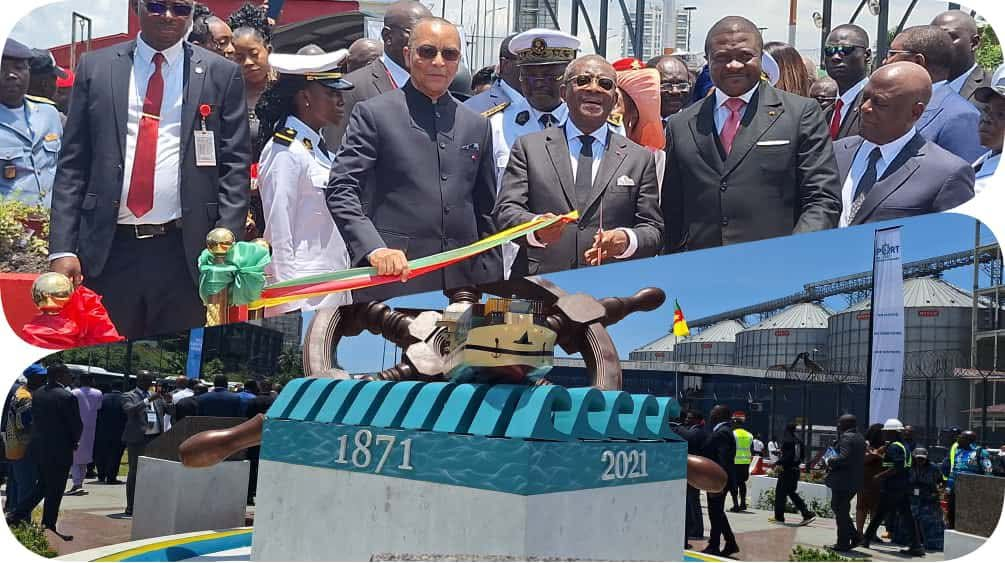The banks of the Wouri River came alive on Friday, Sep 26, 2025 as Cameroon marked a milestone of national pride: the 150th anniversary of the Douala-Bonaberi Port, the country’s largest maritime gateway and one of Central Africa’s most strategic trade hubs.
The grand commemoration brought together government dignitaries, foreign partners, and cultural custodians, highlighting not only the port’s economic role but also its deep cultural and historical importance.
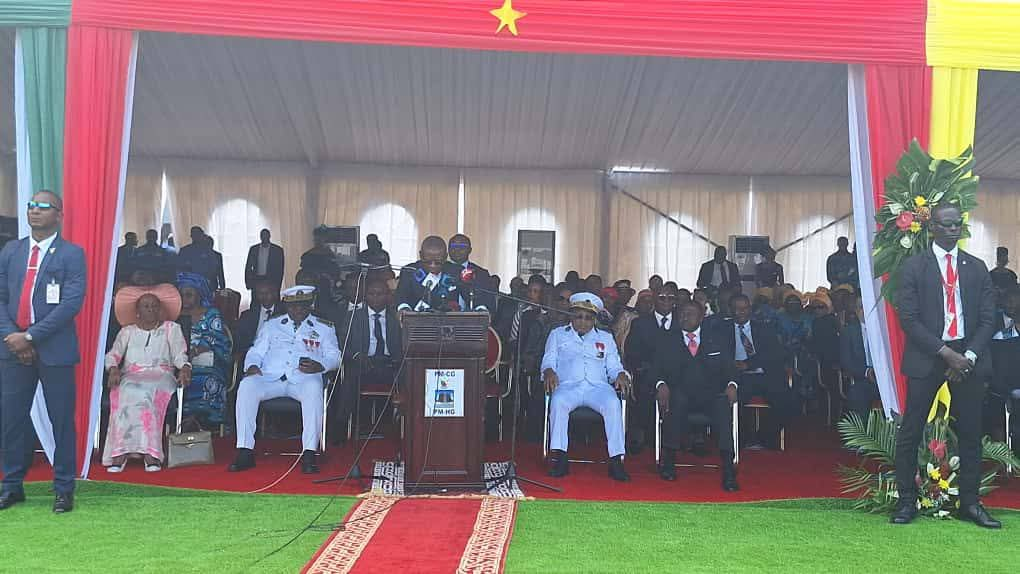
*State and Government Presence*
The celebration was presided over by Prime Minister Joseph Dion Ngute, who represented the Head of State, His Excellency President Paul Biya. Standing alongside him were Minister of Transport Jean Ernest Masséna Ngallé Bibehe, the Director General of the Port Authority of Douala (PAD), Cyrus Ngo’o, Chiefs and Government officials serving in the region.
In their messages, officials praised the port as the beating heart of Cameroon’s economy and an anchor for the Central African sub-region. “The Douala-Bonaberi Port is more than an infrastructure project,” Prime Minister Dion Ngute said. “It is a living testament to our nation’s history, our resilience, and our aspirations for the future.”
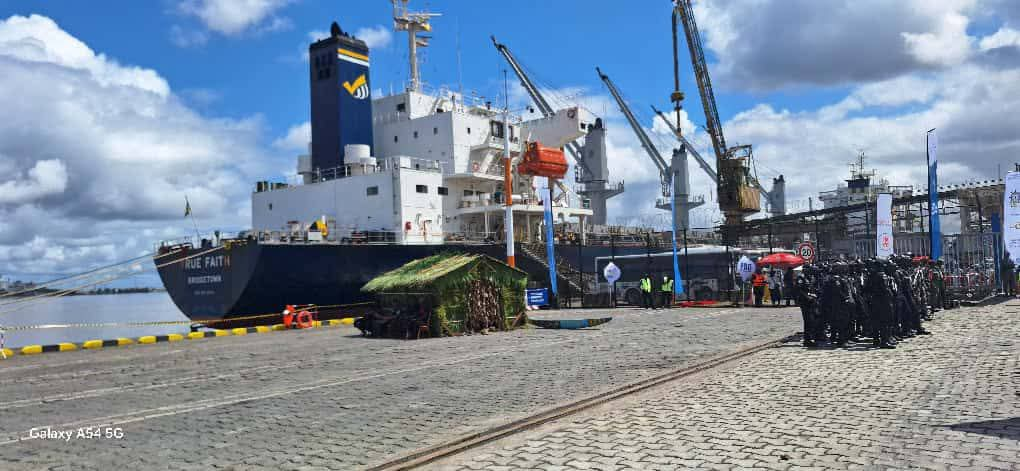
*Tradition Meets Modernity*
The cultural highlight of the day unfolded on the very soil where the port began its journey. Chiefs and traditional rulers of the Wouri Division gathered at the waterfront to perform incantations and blessings, a symbolic act linking the port’s past to its future.
A monument dedicated to the port’s 150 years was unveiled, standing as a reminder of the sacrifices, traditions, and generations that shaped this maritime hub.
“These rituals are a reminder that the port belongs not only to the state but also to the people of the land who have preserved its legacy,” one traditional ruler remarked.
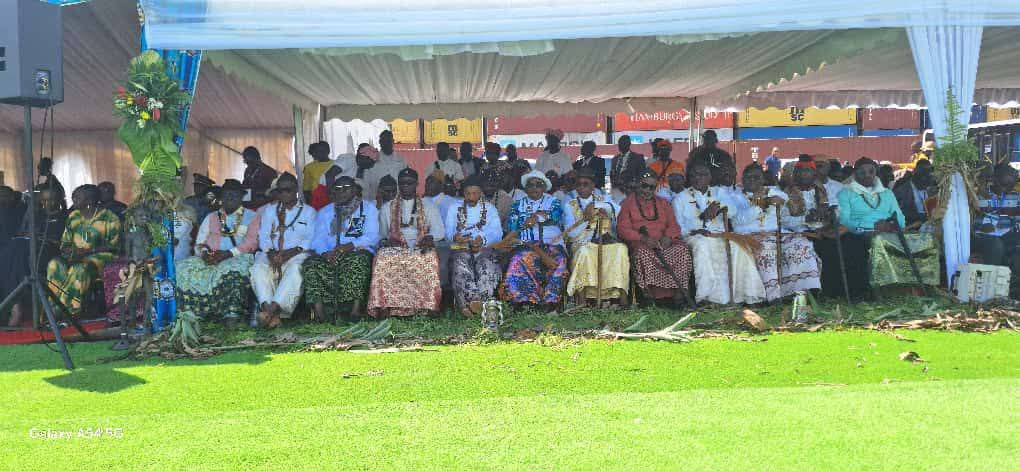
*Maritime Heritage on Display*
Parallel to the official ceremony, an exhibition was staged in Bonanjo, where the Cameroon National Shippers’ Council (CNSC) showcased the country’s maritime history through its Maritime Museum.
Founded on December 18, 2013, by CNSC General Manager Auguste Mbappé Penda, the museum is devoted to preserving Cameroon’s rich seafaring past. The exhibits trace the nation’s maritime story from 1472, when Portuguese explorer Fernando Pó named the Wouri River Rio dos Camarões (“River of Shrimps”), to the German colonial period, and through to modern-day Cameroon.
The museum in the form of a ship offers a three-level experience:
* First floor: Maritime history from 1884 to the present, including Cameroon’s colonial encounters.
* Second floor: An educational display on ships, their parts, and the professionals who work aboard them—from captains to engineers.
* Third floor: A conference and attraction area, including a 3D simulation room where visitors don special glasses and experience the sensation of sailing on the high seas.
Artifacts such as royal Douala chairs and traditional relics are also on display, reinforcing the deep link between maritime trade and Cameroon’s cultural heritage.
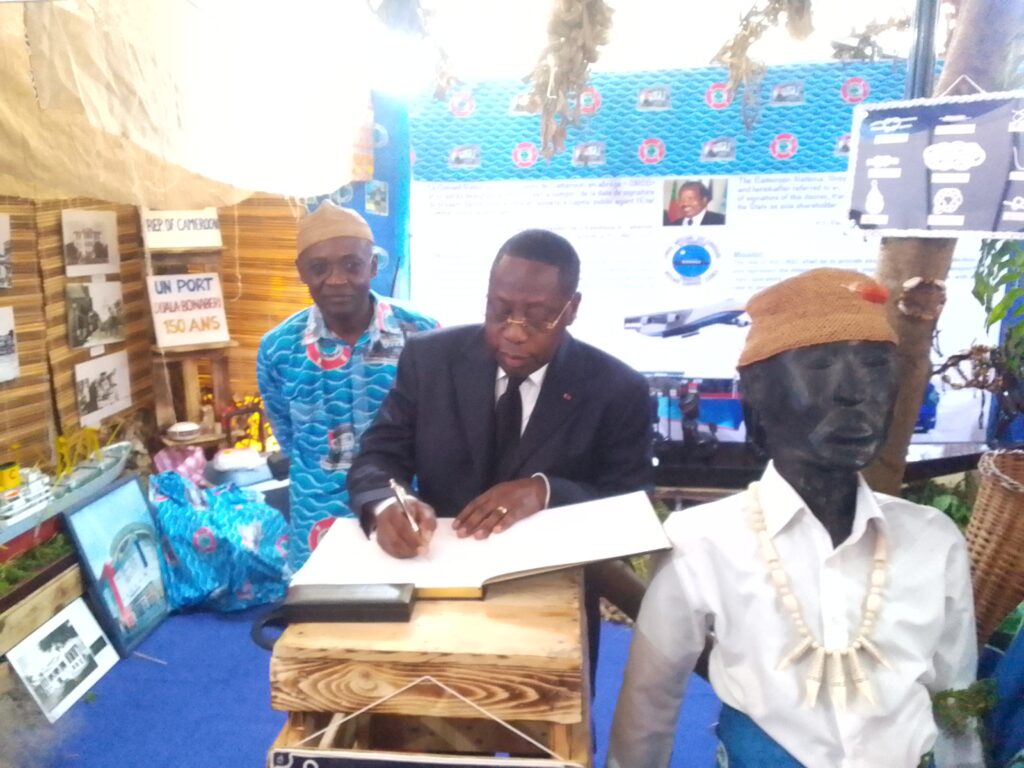
*The Port Today: Economic Lifeline*
The Douala-Bonaberi Port is not only a cultural treasure but also a pillar of Cameroon’s economy. Handling the bulk of imports and exports, the port also serves as a lifeline for landlocked neighbors including Chad and the Central African Republic.
Under the leadership of Director General Cyrus Ngo’o, the port has undergone a process of modernization, introducing logistics zones, expanding container terminals, and improving energy efficiency. Recent figures show robust growth: revenues above 119 billion CFA francs, with net profits of 14.6 billion CFA francs, underscoring its role as an engine of national development.
“The modernization of Douala-Bonabéri Port, ordered by President Paul Biya in 2011, has made it a high-performing economic catalyst for Cameroon and our cultural heritage coexists with economic progress,” Cyrus Ngo’o said during the ceremony.
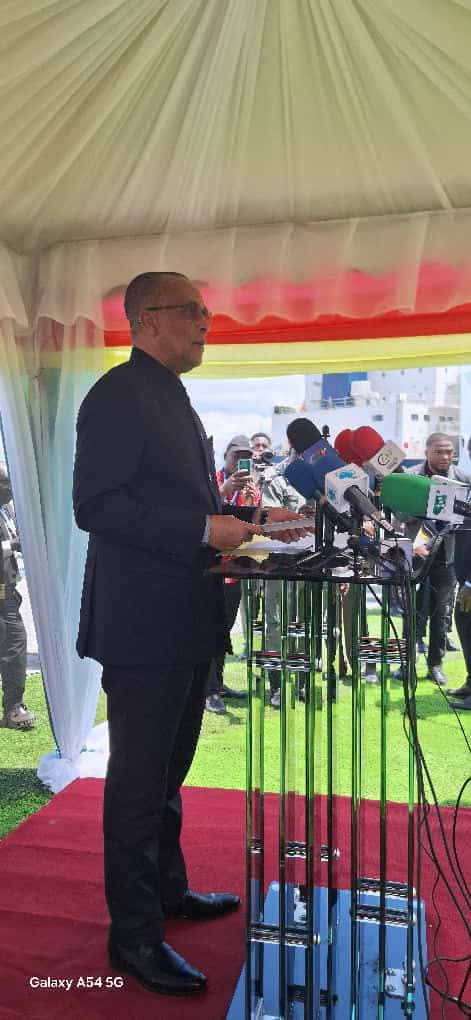
*Cultural and Economic Symbol*
For many Cameroonians, the anniversary was more than just a corporate milestone. It was a reflection of the country’s duality of heritage and progress—where ancestral blessings meet cutting-edge trade, and where cultural pride strengthens economic ambitions.
The blending of rituals by chiefs, state speeches by officials, and exhibitions by cultural institutions painted a complete picture: the Douala-Bonaberi Port is a bridge between yesterday’s traditions and tomorrow’s opportunities.
*Looking Ahead*
As Cameroon looks to the future, the challenge remains to balance modernization with cultural preservation. Officials and traditional leaders alike agree that the port must continue to evolve without erasing its identity.
“This port is not just the gateway to our economy; it is the gateway to our history and culture,” said Nji Peter Ndifor a maritime official. “To protect it is to protect Cameroon’s soul.”
The 150-year celebration closed with a renewed sense of pride—and a clear message: the Douala-Bonaberi Port is not merely a dock for ships, but a dock for memory, identity, and progress.
By Betrand Ntumnyuy

